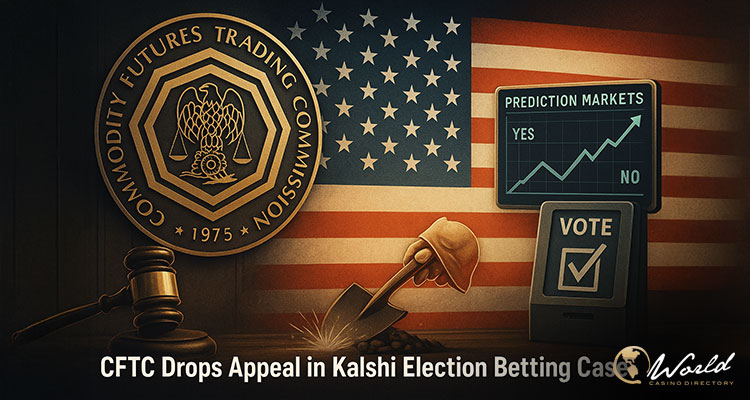The U.S. Commodity Futures Trading Commission (CFTC) has officially stepped back from its legal battle with prediction market operator Kalshi, abandoning its appeal of a ruling that had cleared the company to offer contracts on political outcomes. The decision marks a major turning point in the regulation of event-based trading in the United States and opens the door for broader development of political prediction markets.
On Monday, the CFTC filed a motion with the U.S. Court of Appeals for the D.C. Circuit to voluntarily dismiss its appeal, which had challenged a 2024 district court ruling favoring Kalshi. The agency’s move followed a 3–0 commission vote, with one commissioner abstaining, and included terms that both parties would cover their own legal costs. Kalshi also agreed to forgo any future claims related to the case.
“Today is historic. We have always believed that doing things the right way, no matter how hard, no matter how painful, pays off. This result is proof of that,” said Tarek Mansour, Kalshi’s co-founder and CEO, according to CoinDesk. “Kalshi’s approach has officially and definitively secured the future of prediction markets in America.”
Kalshi’s conflict with the CFTC originated in mid-2023 when the platform sought regulatory approval to offer contracts allowing users to predict which political party would hold control of Congress. The CFTC, then under the leadership of former Chairman Rostin Behnam, rejected the proposal, citing concerns over potential gambling violations and risks to public trust. The agency argued that such contracts were “contrary to the public interest.”
Legal Win Opens Doors for Political Betting Contracts
Kalshi responded by initiating legal proceedings in the District of Columbia, asserting that the CFTC had acted beyond its authority. In September 2024, Judge Jia Cobb ruled in Kalshi’s favor, concluding that Congress had not authorized the CFTC to conduct the type of public interest review it used to block the contracts.
The CFTC’s initial reaction was to contest the verdict, seeking an emergency stay and later filing an appeal. However, the appeals court denied the stay and allowed Kalshi to proceed with listing its political event contracts while the legal process unfolded. Though the case had been fully briefed and orally argued, the CFTC’s recent motion signals a strategic retreat from what critics saw as a faltering legal position.
Rising Influence and Political Implications
Kalshi’s prominence has grown alongside increasing political entanglements. In January 2025, Donald Trump Jr. was named a strategic advisor to the company, just as former President Donald Trump returned to office. Soon afterward, Trump nominated Kalshi board member and former CFTC Commissioner Brian Quintenz—an outspoken supporter of prediction markets—to lead the regulatory agency. These developments underscore the firm’s growing influence in political and regulatory circles.
The CFTC’s reversal also comes amid internal shifts. The agency, now under acting Chair Caroline Pham, has adopted a less aggressive stance on crypto enforcement, consolidating its enforcement units and eliminating several prior task forces. Sources within the CFTC confirmed that certain staff members had recently been placed on administrative leave over alleged legal and ethical violations.
Divided Reactions and Industry Impacts
While Kalshi and its supporters view the CFTC’s decision as a vindication of event-based trading, critics remain wary. Advocacy group Better Markets condemned the move, calling it “a stark betrayal of the public interest” and warning that political betting could undermine democratic integrity and lead to financial market manipulation.
“The CFTC has just voluntarily surrendered its fight to overturn a dangerous lower court decision that allows gambling on the outcome of congressional elections,” said Stephen Hall, legal director at Better Markets. “That decision was bad law and even worse policy.”
Despite regulatory skepticism, Kalshi has continued to expand its offerings. The company now lists contracts on various political outcomes—including Senate and gubernatorial races—and has delved into sports and entertainment predictions. In March, its NCAA March Madness event contracts generated $200 million in trading volume, a company record. Kalshi executive Jack Such described prediction markets as showing “an astronomical rate of growth” and predicted they could become a “trillion-dollar asset class.”


